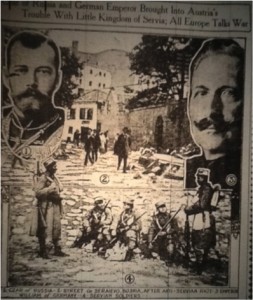On 1 August, Germany issued an ultimatum to Russia to stop mobilizing within twelve hours. Russia did not stop her mobilization and instead ordered complete mobilization. As a result, Germany declared war on Russia. Germany had not yet mobilized but had declared martial law, the suspension of ordinary law during military operations, which indicated that mobilization would occur soon. Although some mediation talks were still being held, Russia’s mobilization and Germany’s declaration of war and of martial law left little hope that a general European war could be avoided.
Since peace seemed unlikely, countries around Europe began to mobilize their armies for defence purposes. Great Britain mobilized her regular army and ordered her navy to be ready in case of emergency. The neutral nations of Belgium, Holland, Switzerland, Norway, Sweden, and Denmark, mobilized for their general defence and to prevent their territories from being used as military routes by belligerent countries.
Germany declared war on France on 3 August. Germany demanded that Belgium allow the German forces passage through their borders towards France. Despite the fact that Belgium refused the Germans passage, the German Forces crossed Belgian borders on the morning of 4 August. This action resulted in an ultimatum from Britain, demanding that Germany retreat out of Belgium.
(“Parleys Resumed,” Berlin Daily- Telegraph, 1 August 1914; Photo Origin: London Free Press, 31 July 1914.)
